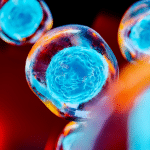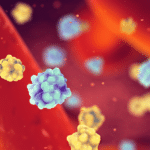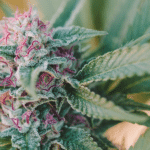Cannabinoids play a diverse role in addiction. They confer some of the euphoric feelings of many drugs, but also help eliminate memories that trigger cravings.
The also regulate dopamine in a part of the brain called the ventral tegmental area (VTA). Normally, dopamine release in the VTA helps orient animals, including humans, to new kinds of stimuli. But the flood of dopamine feels good and consequently reinforces behavior, which can arouse pathological drug-seeking, gambling, eating, and other addictions. The role of the CB2 receptor as a regulator of dopamine was recently examined by an international collaboration of Chinese and U.S. researchers. Activating CB2 with a synthetic cannabinoid reduced excitatory signals that promote dopamine release in the VTA, but not inhibitory signals. CB2 did not just decrease the signals sent to the VTA; researchers isolated individual neurons and showed that CB2 activation also reduced their intrinsic excitability by opening an ion-channel. These results indicate that chemicals which activate CB2 may have anti-addictive properties – a feature possessed by a number of compounds in cannabis.
Read article: Mechanisms of cannabinoid CB2 receptor-mediated reduction of dopamine neuronal excitability in mouse ventral tegmental area
Adrian Devitt-Lee is a research scientist and longtime Project CBD contributor. © Copyright, Project CBD. May not be reprinted without permission.







